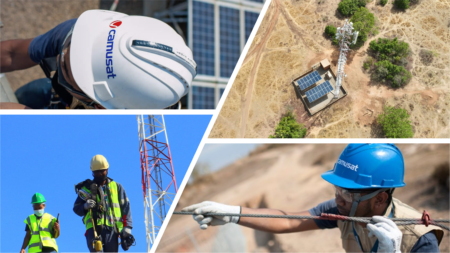- Start-ups dealing in payments and remittances will receive the highest amount of investment
- In the first three months of 2022, Kenyan start-ups raised US$48 million in venture funding
- Kenya is now among the Big Four countries in Africa attracting massive funding with Nigeria leading the way with KSh. 60 billion
Yearly funding for Kenyan start-ups is projected to hit US$84,997,8750 (KShs. 100 billion) in the next three years.
Speaking during the Digital and Technology Week event held in Nairobi, Go Gaga Experiential Chief Executive Officer Norah Muthoni Mumo said start-ups dealing in payments and remittances will receive the highest amount of investment.
“The payment and remittances sector addresses a huge fundamental issue of how to pay and get paid affordably. The space has big companies with great track records, and investors like spaces that have proven value and have already attracted big investors,” she said.
Read: Success behind Kenya attracting tech start-up investment
In the first three months of 2022, Kenyan start-ups raised US$48 million in venture funding more than the country did in all of 2021 when start-ups raised KShs. 41 billion.
Kenya is now among the Big Four countries in Africa attracting massive funding with Nigeria leading the way with KShs. 60 billion.
“Kenya is a leading hub for entrepreneurship on the continent because of a growing number of engaging international investors, a huge population with access to technology, and a growing number of start-up support organisations active in the ecosystem,” Mumo revealed.
She attributes the projected growth to investment from corporate Kenya in accelerators, incubators and innovation programmes as well as investments in innovation funding coupled with a growing community of successful investors, and entrepreneurs.
Start-ups in Africa have raised over KShs. 100 billion in the first quarter of 2022, breaking the record established in the third quarter of 2021 by just a few million. Compared to last year, there’s been 2.5x more funding raised in Q1-22 than in Q1-21.
However, despite the huge growth, funding flowing to African start-ups is still a drop in the ocean of global venture funding representing just one per cent of global venture funding.
“Governments in Africa must invest in this space through reducing the burden of regulation, embedding incentives within legislation and investing in science and technology skills,” Mumo added.
The 7th edition of Digital and Technology Week (DTW) 2022 formally Social Media Week attracted over 600 participants in Africa.
DTW is the leading Digital and Technology Platform in Africa providing unrivalled Industry Insights, Exploring Emerging Trend & Research and a Product/Brand Launch Pad.
The 4-Day event attracts corporates, agencies, government, media and technology companies both local and International and features an array of activities including Keynotes, Master Classes, Workshops, Networking Sessions, Fireside Chats, Panel sessions, Case-studies, Product launches and Brand-Agency engagements.
“Such events bring life to the industry. As the government we assure you of our support in creating an environment for start-ups to thrive, we are on the road to equipping more than 2 million young Kenyans with the necessary digital skills to help start-ups go to the next level, and we will continue to create supportive policies in a bid to increase investments in this area,” said ICT Chief Administrative Secretary Maureen Mbaka.
Read: Africa: Post-pandemic future for tech startups looks bright
In a related story, Google recently revealed that African startups raised over $4 billion in 2021, 2.5 times more than in 2020, with fintech startups making up over half of this funding.
In the African Developer Ecosystem Report, Google noted that the shift to remote work also created more employment opportunities across time zones and continents for African developers while lifting the pay for
Senior talent. As a result, international companies are now recruiting African developers at record rates.
The report further found that despite the challenges associated with the pandemic, the continent’s developer ecosystem is on the rise.
The findings of a study were conducted across 16 Sub-Saharan African countries through fielded and analysed surveys of software developers as well as interviews with local experts.
Commenting on the finding, Nitin Gajria, Managing Director, Google in Africa said that while Africa’s tech innovation sector is making great strides, global tech companies, educators and governments can do more to ensure that the industry becomes a strategic economic pillar.
“At Google, we are intent on further igniting training and support for this community by bridging the existing developer skills gap and concentrating our efforts on upskilling female developers who face pointed challenges,” he said.
“In order to reach this potential, we have to provide better access to high-quality, world-class skilling on mobile technologies platforms coupled with increasing connectivity in Africa. Our effort to increase connectivity is focused on infrastructure, devices, tools and product localisation,” added Gajria.
Gold Rush: Venture capitalists keen to harness opportunities in African startups











